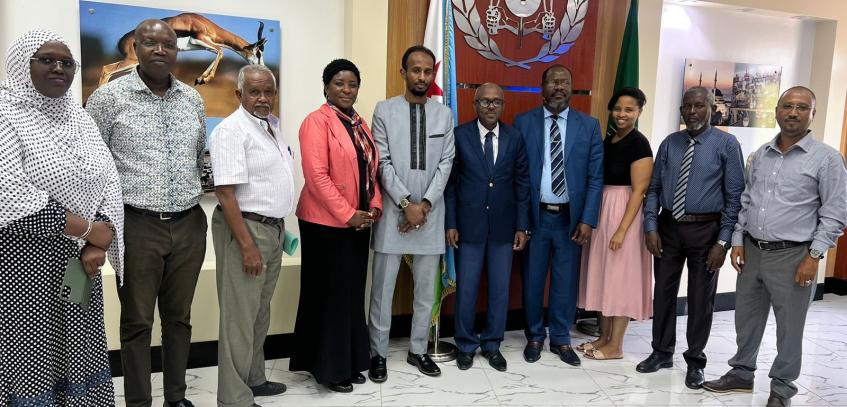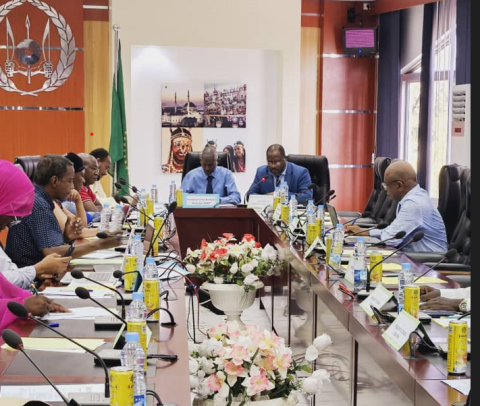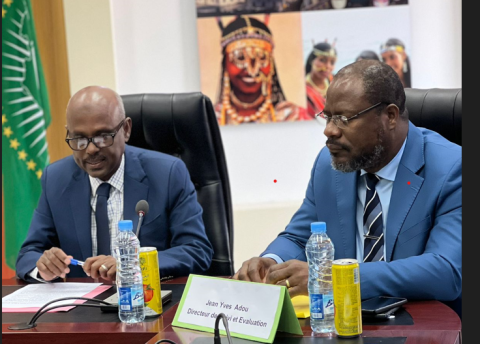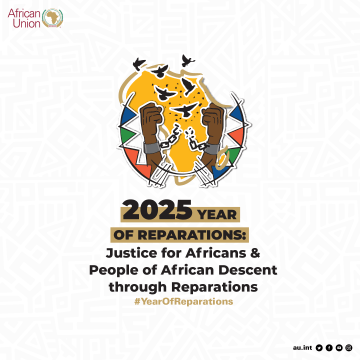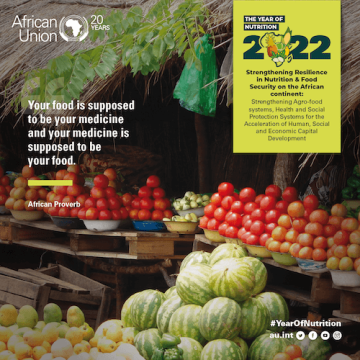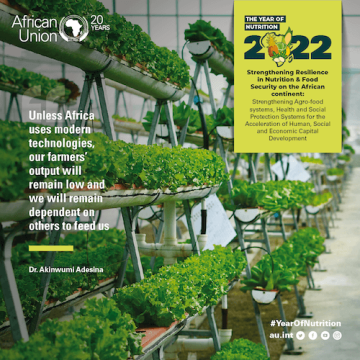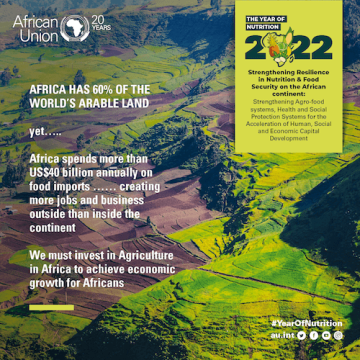Djibouti, 18th to 20th September 2023. The APRM Continental team, led by Mr. Jean Yves Adou, Acting Director of Monitoring and Evaluation, conducted an impact study on governance in the Republic of Djibouti, along with nine other Member States (Ghana, Uganda, Kenya, Nigeria, Egypt, Mozambique, Chad, South Africa, and Zambia). The team also included Mr. Peter Kimemia, International Consultant, Mr. Hassan Mahamat Ahmat, Coordinator of Djibouti, Mr. Sampson Osei, statistician in charge of the study project, as well as the communication team of the APRM Continental Secretariat.
In his opening remarks, Mr. Hamid Mohamed Aden, President of the APRM National Commission, expressed his gratitude to the representatives of the National Assembly and the National Human Rights Commission for their presence during the study. He also expressed his gratitude to the Continental Secretariat for choosing the Republic of Djibouti as one of the ten countries for this timely and important study.
Mr. Jean Yves Adou, Acting Director, expressed his deep thanks to Mr. Mahamoud Ali Youssouf, Minister of Foreign Affairs and International Cooperation, APRM focal point in Djibouti, for his generous support to the APRM National Commission and his cooperation in facilitating the impact assessment. Having outlined the methodology of the study, Mr. Adou commended Djibouti for its active participation since its inception to the mechanism in 2007.
The International Consultant, Mr. Peter Kimemia, presented the objectives of the study and the deliverables, highlighting the importance of the APRM toward the betterment good governance on the continent since its inception. He also discussed the key indicators of the study and the challenges ahead.
Mr. Hassan Gouda Said, National Consultant, opened discussions on the selected themes and indicators, focusing on the rule of law, the separation of powers, human rights, etcetera, in line with the Country Assessment Report. He also reviewed the priority actions needed in this area and assessed the progress made in implementing the recommendations of the country assessment report since 2018.
The study's discussions extended to interactions with the National Assembly. In this respect, MP Abdallah Barkat highlighted the improvements recorded in the field of human rights. He highlighted the role of Parliament in the in-depth legislative work and its contribution to the improvement of human rights in the country.
Mr. Mohamed Issé, Secretary General of Decentralization, provided information on the decentralization process in Djibouti, detailing its evolution and positive impacts, including the transfer of powers and resources to the regions.
Meetings with Madam Fatouma Moussa Abdi, General Secretary of the National Union of Djiboutian Women (UNFD) focused on women's empowerment and progress in increasing their representation in various spheres of society. Challenges, including literacy for women and girls, were also discussed.
In his closing remarks, Mr. Moussa Mohamed Omar, representative of the focal point, expressed his gratitude to the APRM Continental Secretariat, and proposed that the report be shared with Djibouti for review prior to its compilation with the reports of other highlighted countries.
It is with the celebration of APRM's 20th anniversary that was born the idea to assess its achievements and impacts in peer-reviewed Member States on the continent. The objectives of this impact assessment include assessing the responsiveness of States Parties to governance reviews, identifying challenges in implementing recommendations, highlighting good practices, assessing citizens' perceptions, and formulating concrete recommendations to strengthen the impact of the APRM.
For inquiry, please contact:- Mr Jean Yves Adou, Ag Director of Monitoring and Evaluation, jean.adou@aprm-au.org Mr. Sampson Osei, Statistician- sampson.osei@aprm-au.org. Ms. Lydie Bokoko -lydie.bokoko@aprm-au.org
About APRM:
The African Peer Review Mechanism (APRM) is a mutually accepted instrument to which African Union (AU) Member States voluntarily adhere as a self-assessment mechanism. It aims to foster the adoption of policies, standards and practices leading to political stability, high economic growth, sustainable development and accelerated subregional and continental economic integration through the sharing of experiences and the strengthening of successful practices.

